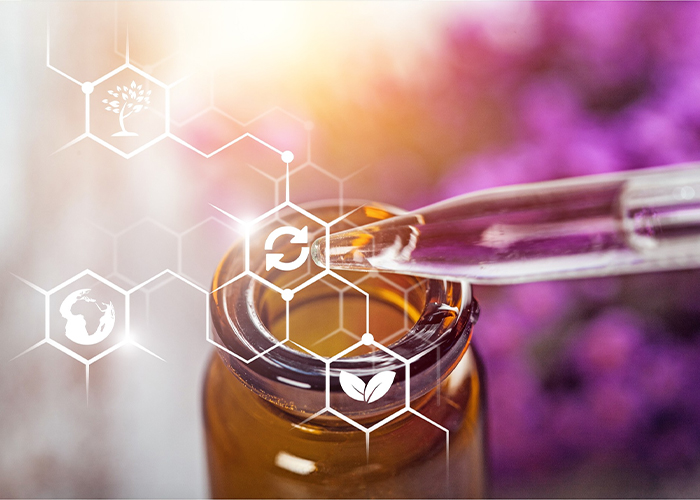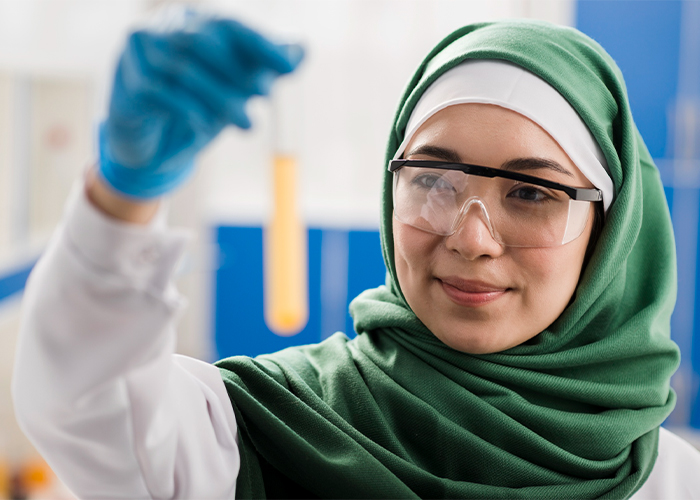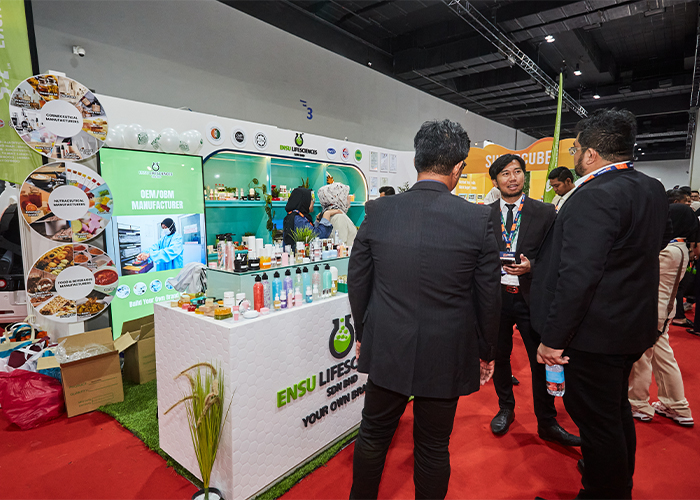ASEAN’s Next Billion-Dollar Bet: Halal Pharma & Beauty on the Rise
In recent years, halal pharmaceuticals and cosmetics have evolved from niche segments into powerful market drivers across the global halal economy. No longer confined to dietary or religious observance alone, these industries are now associated with safety, ethical sourcing, and consumer trust. At the heart of this transformation lies Malaysia — chairing ASEAN in 2025 and proudly hosting the Malaysia International Halal Showcase (MIHAS) 2025, the world’s largest Halal trade showcase.
As global consumer awareness grows, MIHAS 2025 is spotlighting the next phase of halal: one that goes beyond food into daily-use essentials like medicine, supplements, skincare, and personal care products. With its robust halal certification system, innovation ecosystem, and export-ready SMEs, Malaysia is shaping the future of halal pharmaceuticals and cosmetics — and offering a blueprint for ASEAN-wide growth.
The Rise of the Halal Lifestyle
From Kuala Lumpur to Jakarta and Dubai to London, the concept of halal is expanding. Once predominantly associated with food and beverages, it is now part of a wider 'halal lifestyle' movement. With over 2 billion Muslims worldwide, there is a growing demand for products that align with Islamic principles, including health supplements, over-the-counter medicines, moisturisers, and cosmetics.
This trend is not confined to Muslims alone. Halal-certified cosmetics and pharmaceuticals are also attracting non-Muslim consumers who associate the label with quality, hygiene, and ethical practices. According to the State of the Global Islamic Economy Report, the halal pharmaceutical sector alone is expected to exceed USD 130 billion by 2025, while the halal cosmetics sector is projected to exceed USD 90 billion.
Thanks to its well-established regulatory system and internationally recognised halal certification, Malaysia is well-placed to spearhead this evolution, making MIHAS 2025 a pivotal platform for businesses looking to capitalise on this growing opportunity.

Malaysia: Setting the Gold Standard
With its role as ASEAN chair and halal gateway in 2025, Malaysia's influence over standard-setting, certification and trade facilitation is greater than ever.
The Department of Islamic Development Malaysia (JAKIM) is one of the world's most respected halal certification bodies, with its standards recognised in over 60 countries. This gives Malaysian companies, as well as foreign brands certified in Malaysia, a significant competitive advantage in global markets. The growing alignment between Malaysia’s halal certification standards and those of the ASEAN region is paving the way for smoother cross-border trade, particularly in healthcare-related sectors.
At MIHAS 2025, there will be a strategic focus on pharmaceutical and cosmetic brands that are both compliant and research-driven. Exhibitors will include manufacturers of halal vaccines, painkillers, personal care products, and biotech items, offering buyers, investors, and healthcare providers across ASEAN an insight into the region's innovations.
Innovation Meets Compliance
One of the key challenges in the development of halal pharmaceuticals and cosmetics is R&D, particularly identifying alternatives to non-halal ingredients such as gelatine, alcohol and animal-derived enzymes. In collaboration with local universities and biotech parks, Malaysian pharmaceutical companies are developing plant-based and synthetic alternatives that maintain product efficacy while meeting halal standards. In a world where consumers demand transparency, safety and ethics, halal pharmaceuticals and cosmetics offer trust as well as certification.

Halal collagen, plant-based emulsifiers and alcohol-free formulations are now standard in many skincare and cosmetic products, for example. Similarly, halal-certified capsules, syrups and injectables are becoming more prevalent in mainstream pharmaceuticals.
These innovations are not just technical — they’re commercial game-changers. Brands that invest in halal R&D can expand into Muslim-majority markets such as Indonesia, Pakistan, Bangladesh and the Middle East, while also appealing to health-conscious consumers worldwide.
MIHAS 2025 will bring together R&D experts, regulatory stakeholders, and manufacturers to explore this synergy, thereby positioning Malaysia and ASEAN as centres of halal innovation.
Regulatory Support & Trade Acceleration
Malaysia’s Halal Industry Master Plan 2030 sets out clear objectives for strengthening the halal pharmaceutical and cosmetic ecosystem, including funding schemes, export incentives and talent development. Agencies such as MATRADE, HDC and the National Pharmaceutical Regulatory Agency (NPRA) are collaborating to streamline processes, boost industry confidence and accelerate trade flows.
ASEAN-wide harmonisation of halal standards, which is being supported by Malaysia’s chairmanship in 2025, will also unlock new efficiencies. Companies that previously faced duplicative certifications and import/export delays will benefit from faster, more efficient access to neighbouring markets.
At MIHAS 2025, attendees can look forward to curated forums and trade discussions focusing on these very enablers, demonstrating how collaboration between the government and businesses is accelerating the development of the halal supply chain across ASEAN.

Driving Export Growth Through MIHAS
For SMEs and manufacturers, MIHAS is more than just a trade show — it's a growth engine. In 2023 alone, the event generated RM 3.11 billion in sales, with a significant proportion coming from the health and beauty sectors. With ASEAN under Malaysia’s stewardship in 2025, these numbers are expected to increase further.
Whether you are a pharmaceutical company looking to access Indonesia's vast market or a cosmetics brand targeting Middle Eastern buyers, MIHAS provides an unparalleled platform. With pre-arranged B2B meetings, industry briefings and digital showcases, it enables companies to form long-lasting partnerships.
Furthermore, MIHAS attracts buyers from diverse markets such as Japan, Turkey, South Africa and Europe. For halal-certified brands, this global exposure is invaluable.
As Malaysia welcomes the region and the world to MIHAS 2025, one thing is clear: halal is no longer a niche market — it’s the new standard. From boardroom discussions to beauty shelves and hospital cabinets, the halal label is influencing how products are produced, promoted, and purchased across ASEAN and beyond.
For businesses ready to capitalise on this growing demand, MIHAS 2025 is more than just a destination. It’s a launchpad.


